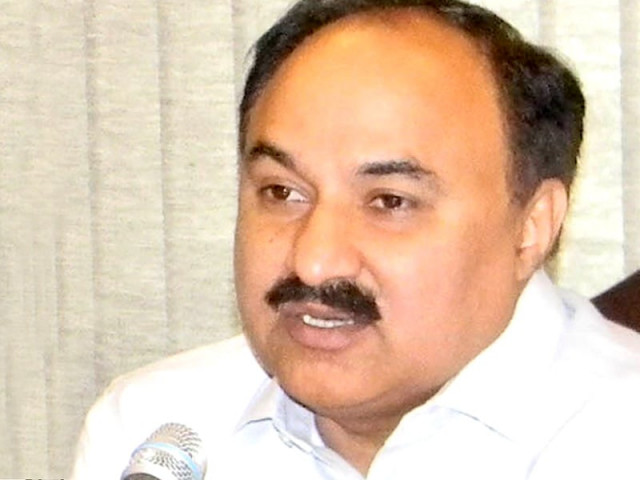A cat can look at a king: Longtime DCO’s office peon endorses new system
Former Sukkur nazim Syed Nasir Hussain Shah criticises the government’s decision.

If you really want to know how a system works, start at the bottom. Ask the peon who has been working at the DCO’s office for more than 25 years.
“Reviving the commissioner system is a good thing because it allows people to get easy access to justice, which earlier was denied to them because of the favouritism and nepotism in the local government system,” said the peon, who did not want to be named for fear of incurring the wrath of his superiors.
On Monday, Sukkur saw the first of the changes. District Coordination Officer Inamullah Dharejo became the new commissioner as Sukkur was restored into its old capacity as the divisional headquarters of five districts - Sukkur, Khairpur, Ghotki, Naushehro Feroze and Shaheed Benazirabad (Nawabshah).
The EDOs of revenue will serve as deputy commissioners in their districts. The DCO-turned-commissioner said that matters will become clear gradually. However, he did reveal that budget spending, among several other matters, have yet to be decided.
Looking back
An elderly resident of Sukkur who has seen both systems, Mohammad Ameen Qureshi, felt that the government should have switched over to this system right after assuming power. Yet he still commended the belated decision to re-install the system.
Recalling bygone times, Qureshi commented that the people were happy with the previous system. He said that the old system had offered a cheap way of meting out justice because sub-divisional magistrates could resolve minor disputes themselves.
“I assure you that, if the system is implemented, then many evils of our society will be rooted out,” he asserted.
He reminisced that under the previous system, no one dared raise the prices of daily commodities, because the hoarders and profiteers were held accountable. But since 2001 onwards, everybody has been at liberty to raise the prices of the essential commodities and create artificial shortages, because they were not held responsible by the authorities.
Another keen political watcher, Hameeduddin Shaikh, quipped that the local government system had not been devolution of “power” but in fact a devolution of “corruption” at the grassroots level. He gave the example of some of the councillors, who he said had come from modest backgrounds but by now were quite wealthy. He lamented that people had to bribe the staff of even a councillor to get a death certificate or birth certificate. “The commissioner system is the best plan and it should not be reversed at any cost.”
An officer in the administration, who did not want to be named because of the massive reshuffling, commented that the new system was far superior to the local government system, because it places the police under the deputy commissioner’s direct control.
According to him, since the deputy commissioner has dual powers at administration and judicial levels, he can directly implement orders for, say, the removal of encroachments or punish profiteering grocers. Under the old system, the police worked under the nazim, who used his political preferences and affiliations to manipulate the force. Contracts were awarded to favourites or according to political motivation, favouritism and nepotism which resulted in sub-standard work.
Criticism
Former Sukkur nazim Syed Nasir Hussain Shah was critical however of the changes. He said the government wrongly claimed that the commissioner system has been revived due to popular demand. If this were the case, why didn’t it do this right after coming to power? Shah claimed that, in spite of Benazir Bhutto’s active support for local governments, her party had ironically rolled back to a system of governance brought in by dictator General Ziaul Haq.
Former Sukkur taluka nazim Mohammad Naeem Siddiqui, a member of the Muttahida Qaumi Movement, said that Musharraf had introduced this system to ensure that the benefits of development trickled down to the grassroots level, but instead of further improving the system, the government had switched over to a slavery system.
Published in The Express Tribune, July 12th, 2011.



















COMMENTS
Comments are moderated and generally will be posted if they are on-topic and not abusive.
For more information, please see our Comments FAQ